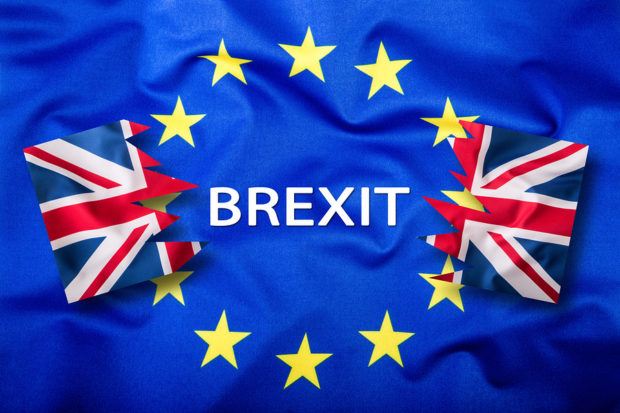The European Union can’t pick and choose which bits of its economic relationship with Britain it maintains and which it eliminates in any future trade deal, U.K. Brexit Secretary David Davis said, throwing the words of EU diplomats back at them.
Post-Brexit trade talks are due to start in March, with a year remaining until Britain’s scheduled exit day in 2019. Writing in Tuesday’s Daily Telegraph, Davis described the discussions as “a deep and open exploratory dialogue to discover a new, mutually acceptable point of balance in our relationship.”
“The final deal should, among other things, cover goods, agriculture and services, including financial services, and be supported by continued intelligent cooperation in highly-regulated areas such as transportation, energy and data,” Davis wrote. “A deal which took in some areas of our economic relationship but not others would be, in the favored phrase of EU diplomats, cherry picking.”
Davis’s remarks are a riposte to his EU counterpart, Michel Barnier, who told reporters last month that financial services couldn’t be included in a deal with Britain because no previous EU trade agreement with other countries had such provisions. U.K. envoys are determined to defend the interests of financial and professional services, an industry that the lobby group TheCityUK estimates contributes nearly 11 percent of economic output.
Raising Standards
“My objective is that services can be traded across borders, from highly regulated sectors like financial services to modern ones such as artificial intelligence,” Davis said. “This will require some common principles: our shared adherence to international standards; the cooperation of our regulators; and an effective dispute resolution mechanism with proportionate remedies.”
Davis also sought to allay the concerns of some on the continent that after Brexit, British companies will be able to undercut European counterparts by loosening standards. “The emphasis here must always be on raising standards,” he said. “There is no route to prosperity in trying to become cheaper than China, or in undermining the safety standards which give confidence to British goods.”
With discussions on a transition period of around two years due to begin this month, Davis said it should be agreed “early,” with a decision by March “doable.” In the longer run, he expressed optimism that a final compromise can be found that benefits both sides.
“A successful outcome can be found, and without threatening our partner’s most important priority: the integrity of the European single market,” he wrote.





















 AI Claim Assistant Now Taking Auto Damage Claims Calls at Travelers
AI Claim Assistant Now Taking Auto Damage Claims Calls at Travelers  Is Risk the Main Ingredient in Ultra-Processed Food?
Is Risk the Main Ingredient in Ultra-Processed Food?  10 Do’s and Don’ts of a Smart ORSA Report
10 Do’s and Don’ts of a Smart ORSA Report  Premium Slowdown, Inflation Factors to Lead to Higher P/C Combined Ratio: AM Best
Premium Slowdown, Inflation Factors to Lead to Higher P/C Combined Ratio: AM Best 

